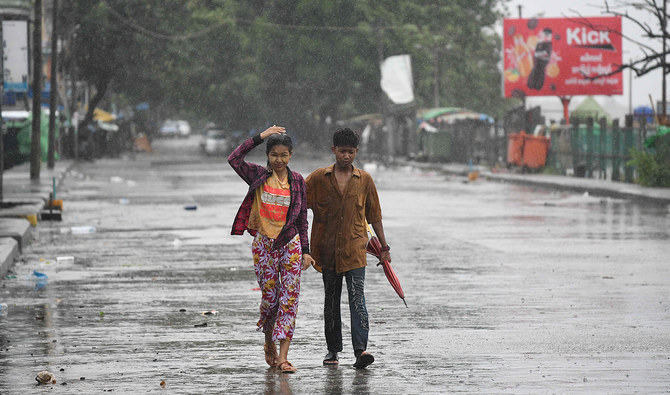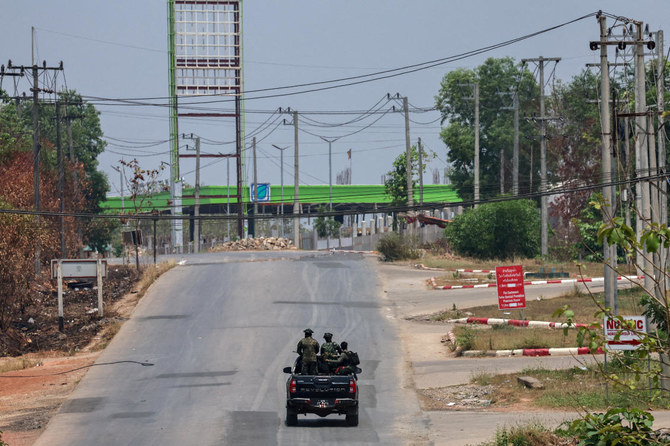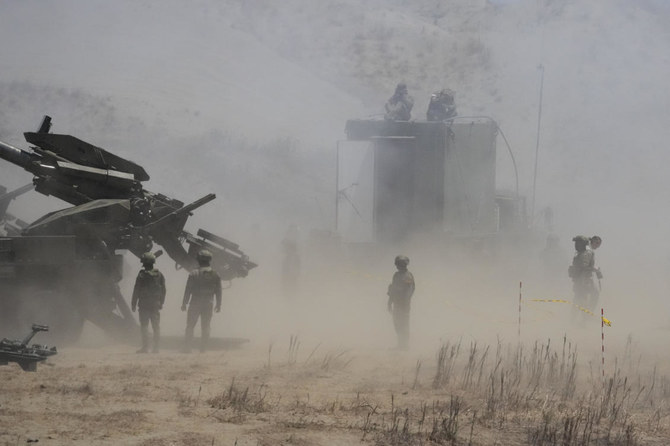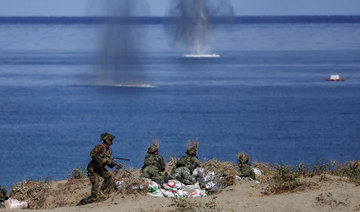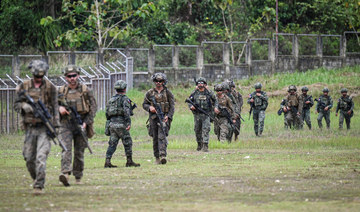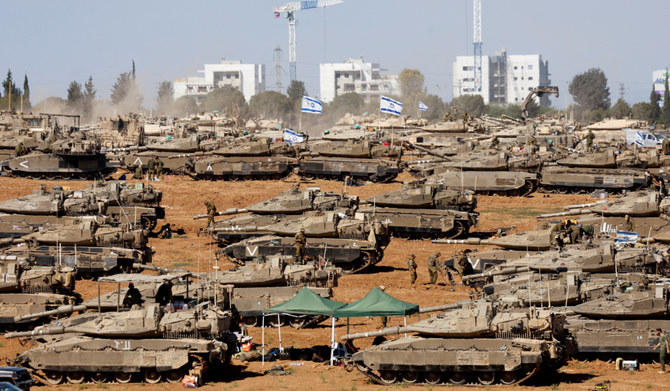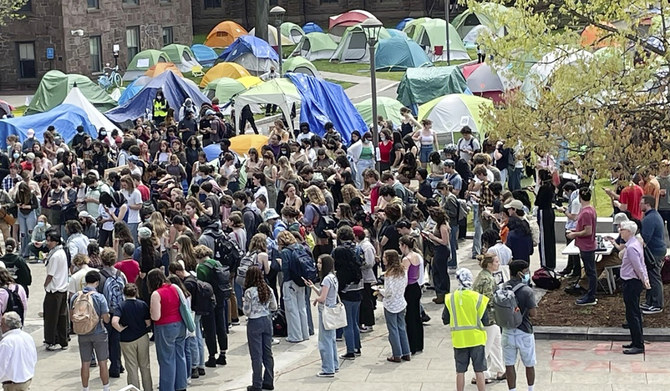DHAKA: Thousands of people hunkered down Sunday in monasteries, pagodas, and schools, seeking shelter from a powerful storm that slammed into the coast of Myanmar, tearing the roofs off buildings and killing at least three people.
The center of Cyclone Mocha made landfall Sunday afternoon in Myanmar’s Rakhine state near Sittwe township with wind speeds up to 209 kilometers (130 miles) per hour, Myanmar’s Meteorological Department said.
Myanmar’s military information office said the storm had damaged houses, electrical transformers, cell phone towers, boats and lampposts in Sittwe, Kyaukpyu, and Gwa townships. It said the storm also tore roofs off of sport buildings on the Coco Islands, about 425 kilometers (264 miles) southwest of the country’s largest city, Yangon.
Rakhine-based media reported that streets and basements of the houses in Sittwe’s low-lying areas were flooded. Much of the area is cut off from telephone and Internet service after high winds crumpled cell phone towers.
More than 4,000 of Sittwe’s 300,000 residents were evacuated to other cities and more than 20,000 people are sheltering in sturdy buildings such as monasteries, pagodas, and schools located on the city’s highlands, said Tin Nyein Oo, who is volunteering in shelters in Sittwe.
Lin Lin, the chairman of a local charitable foundation, said earlier there was not enough food in the shelters in Sittwe after more people arrived than expected.
Titon Mitra, the UN Development Program representative in Myanmar, tweeted: “Mocha has made landfall. 2m people at risk. Damage and losses are expected to be extensive. We are ready to respond and will need unhindered access to all affected communities.”
On Sunday morning, several deaths caused by wind and rain were reported in Myanmar. A rescue team from the country’s eastern Shan state announced on its Facebook social media page that they had recovered the bodies of a couple who were buried when a landslide caused by heavy rain hit their house in Tachileik township. Local media reported that a man was crushed to death when a banyan tree fell on him in Pyin Oo Lwin township in the central Mandalay Region.
Authorities in the Bangladeshi city of Cox’s Bazar, which lay in the storm’s predicted path, said earlier that they had evacuated some 1.27 million people, but by early afternoon it appeared that the storm would mostly miss the country as it veered east, said Azizur Rahman, director of the Bangladesh Meteorological Department in Dhaka.
“The level of risk has reduced to a great extent in our Bangladesh,” he told reporters.
Strong winds accompanied by rains continued in the Saint Martin’s Island in the Bay of Bengal in the afternoon, but feared tidal surges did not take place because the cyclone started crossing Bangladesh coast at low tide, Dhaka-based Jamuna TV station reported.
UN agencies and aid workers in Bangladesh had prepositioned tons of dry food and dozens of ambulances with mobile medical teams in sprawling refugee camps that house more than 1 million Rohingya who fled persecution in Myanmar.
In May 2008, Cyclone Nargis hit Myanmar with a storm surge that devastated populated areas around the Irrawaddy River Delta. At least 138,000 people died and tens of thousands of homes and other buildings were washed away.
Roxy Mathew Koll, a climate scientist at the Indian Institute of Tropical Meteorology in Pune city, said cyclones in the Bay of Bengal are becoming more intense more quickly, in part because of climate change.
Climate scientists say cyclones can now retain their energy for many days. Cyclone Amphan in eastern India in 2020 continued to travel over land as a strong cyclone and caused extensive devastation.
“As long as oceans are warm and winds are favorable, cyclones will retain their intensity for a longer period,” Koll said.
Cyclones, giant storms similar to those known as hurricanes or typhoons in other parts of the world, are among the world’s most devastating natural disasters, especially when they hit densely populated coastal regions.



